- Home
- slideshows
- miscellaneous
- The life and career of Vanguard founder Jack Bogle, the frugal father of low-cost investing whom Warren Buffett called 'a hero'
The life and career of Vanguard founder Jack Bogle, the frugal father of low-cost investing whom Warren Buffett called 'a hero'
Born and raised in New Jersey, Bogle graduated magna cum laude from Princeton University in 1951 with a degree in economics.

After struggling in his early college courses, Bogle found his stride in economics and spent 18 months researching for his senior thesis, a historical and future look at mutual funds. He fell "madly in love with the subject," he later wrote in his memoir.
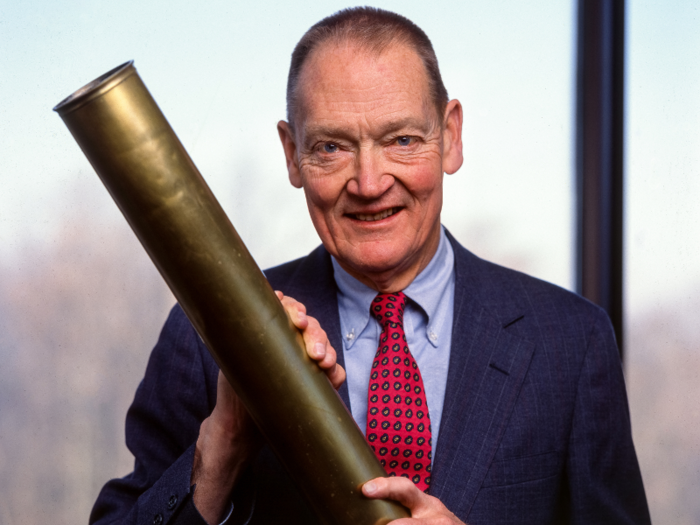
His thesis mapped out what would become the bedrock philosophy of Vanguard: Investment companies have a responsibility to run as efficiently, honestly, and economically as possible, and growth is possible by reducing management fees and sales charges.
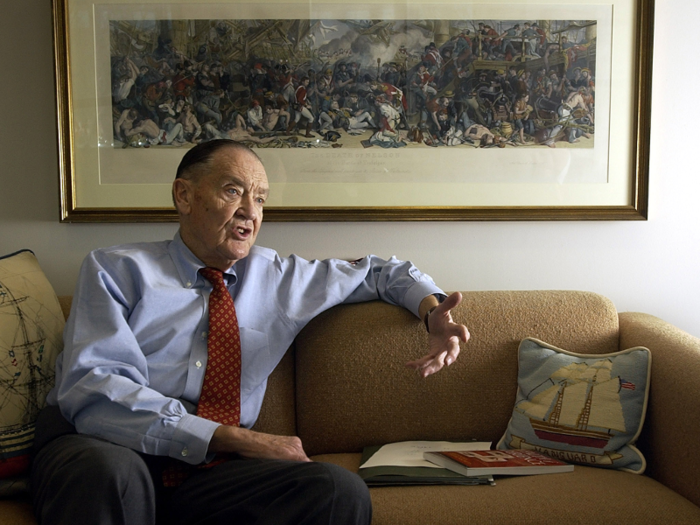
Bogle's thesis caught the attention of a fellow Princeton grad, Walter Morgan, the founder of American's oldest balanced fund. Morgan hired Bogle, then 22, to work at Wellington Management Company in Philadelphia.

Bogle held positions in administration, marketing and distribution, securities analysis, and shareholder relations. By age 35, Bogle took over as CEO, and later president, before merging the company with a Boston investment firm.

Bogle left the firm in 1974 after market turmoil and disagreements among the partners led to his firing. He later called it "the most heartbreaking moment" of his career.
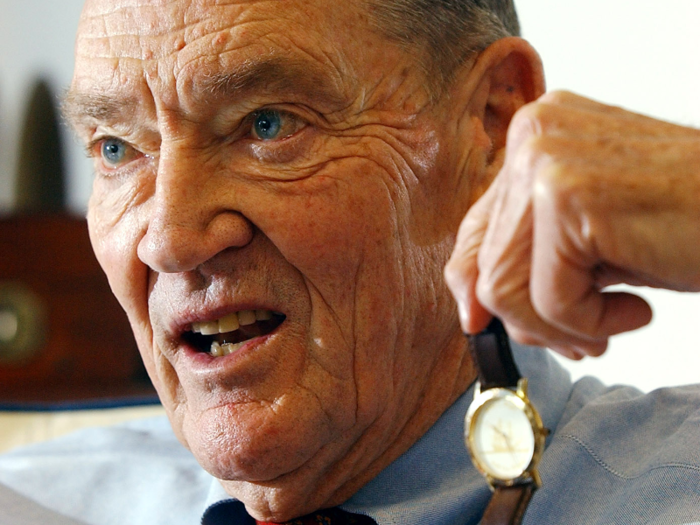
Bogle was still chairman of Wellington's 11 mutual funds, which he used to create Vanguard, a new subsidiary company focused on Wellington fund administration.
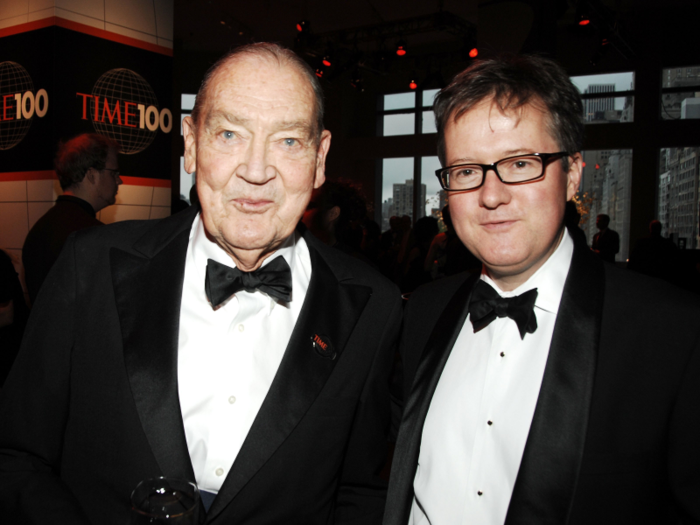
Sources: Vanguard; Business Insider
"My goal was ultimately to build a broad-based firm, and I took on my new leadership role the same way I had left my previous leadership role: 'Fired with enthusiasm,'" Bogle later wrote.

Vanguard's first index fund was "ridiculed" as a "a sure path to mediocrity," according to the firm. Now known as the Vanguard 500 Index Fund, it makes up 70% of Vanguard's $5.1 trillion in assets under management today.

Source: Vanguard
"Our challenge at the time was to build … a new and better way of running a mutual fund complex. The Vanguard Experiment was designed to prove that mutual funds could operate independently, and do so in a manner that would directly benefit their shareholders," he said 10 years after founding the firm.
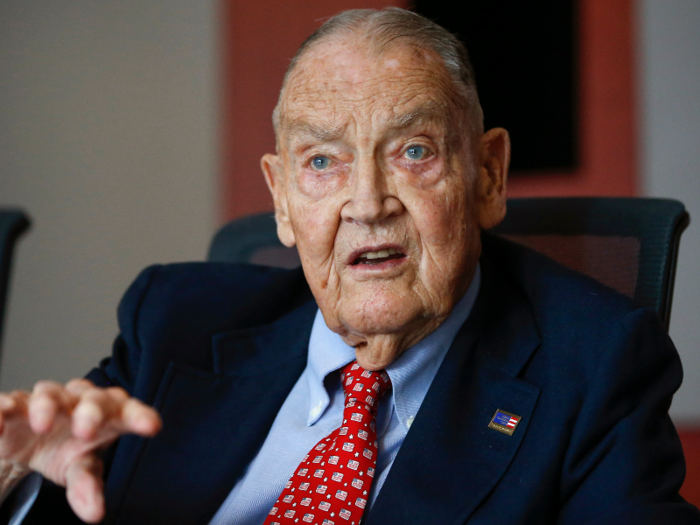
Source: Vanguard
Perhaps no investor is as fond of Bogle as Warren Buffett. The two shared a passion for and staunch belief in the power of low-cost investing.
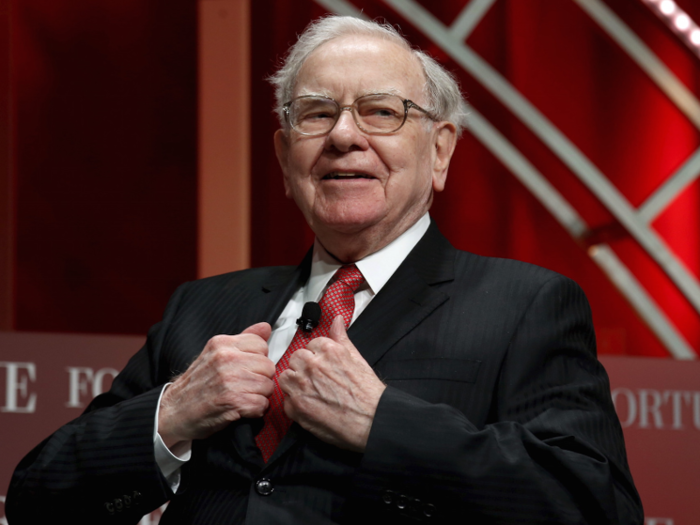
Sources: Business Insider, The New York Times
At his Berkshire Hathaway 2017 Annual Shareholders Meeting, Buffett said Bogle had "probably done more for the average investor than any man in the country."
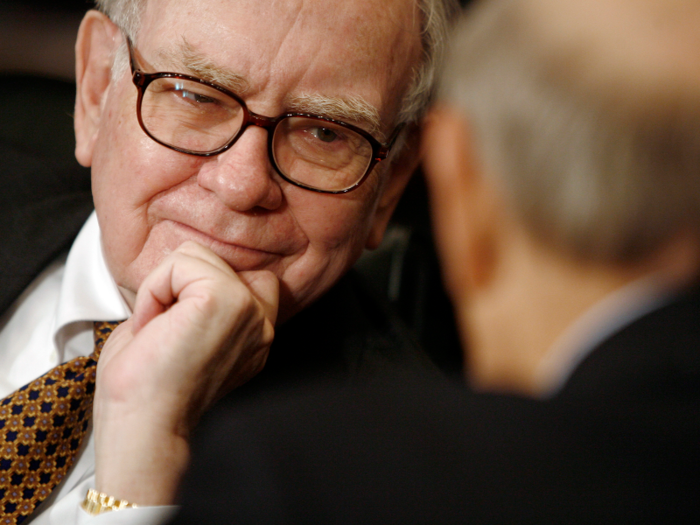
Sources: Business Insider
Buffett once called Bogle "a hero" for his creation of index funds, with their low fees and solid returns. The two also shared a fondness for frugality in their everyday lives.

Bogle was known to take an early train into New York City for a meeting rather than rent an expensive hotel room. At a meeting with a reporter in 1993, he eschewed the $5.95 buffet for a cheaper item from the menu.

Source: The New York Times
A MarketWatch columnist who spoke with Bogle in 2017 said the investor only flew first class once, when the ticket upgrade cost him just $50. Anything more than that he wouldn't be able to justify, he said.

Source: MarketWatch
In a 2012 interview, Bogle revealed his one indulgence: "Every winter my wife and I take a week off and go to a resort in Florida. But I really can't stand spending money on myself."

Source: Reuters
Bogle stepped down as CEO of Vanguard in 1996 when he had to undergo a heart transplant, though he never officially retired from work. Bogle is survived by his wife, Eve Sherrerd, whom he married in 1956; they had six children.
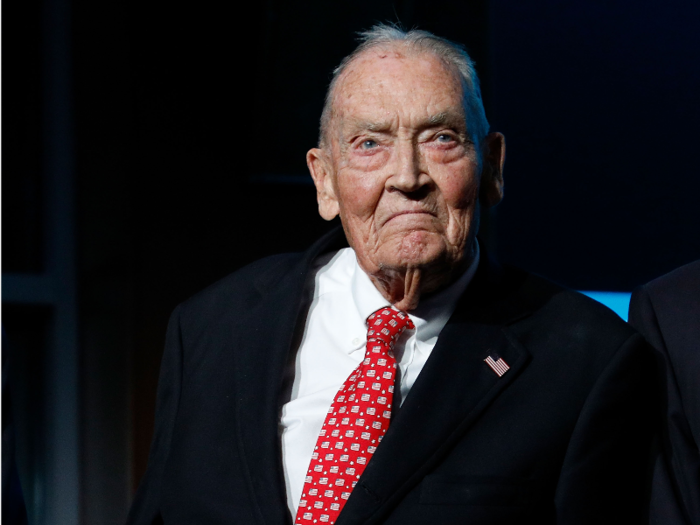
Source: Vanguard, The New York Times
Bogle told the New York Times in 2012, "My only regret about money is that I don't have more to give away." His assets were reportedly 'well below $100 million' in 2018 — a fact he appeared pleased about, according to a Times reporter.

Source: The New York Times
"The best rule for philanthropy is to give until it hurts, as much as you can, because none of us can get through life all by ourselves," he said.
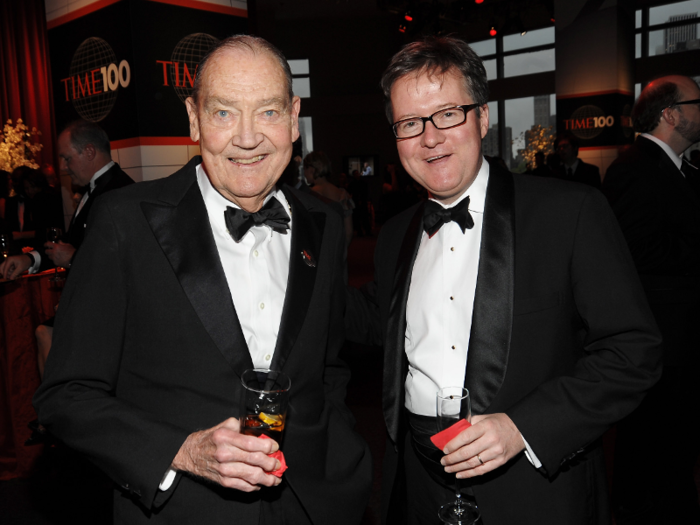
Source: Reuters
When it came to advice, Bogle often repeated the basics. "Invest as efficiently as you can, using low-cost funds that can be bought and held for a lifetime. Don’t go chasing past performance, but buy broad stock index and bond index funds, with your bond percentage roughly equaling your age," he told Reuters in 2012.

Source: Reuters
Popular Right Now
Popular Keywords
Advertisement